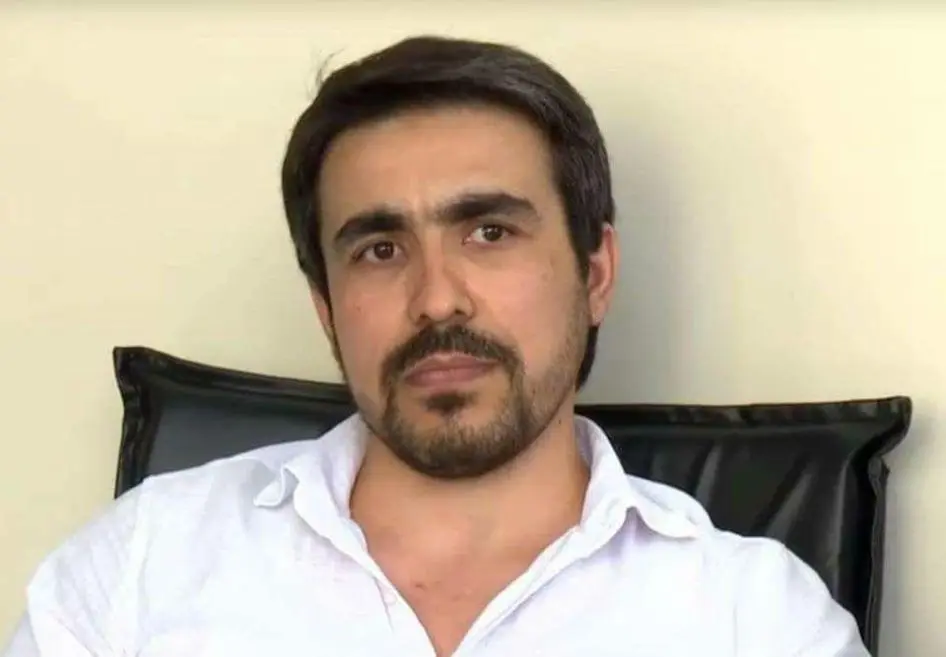Tajik authorities should immediately confirm the detention and whereabouts of and release the opposition activist Sukhrob Zafar, Human Rights Watch, Norwegian Helsinki Committee, and International Partnership for Human Rights said today.
Based on a media report and reports from reliable sources, Zafar was forcibly disappeared while in Türkiye in March 2024, despite holding official UNHCR asylum seeker status there. The sources said that the Tajik State Committee on National Security is holding him in Dushanbe, is periodically torturing him, and has denied him medical assistance. The Tajik government has neither confirmed that he is in their custody nor his whereabouts.
“There are devastating reports that Sukhrob Zafar may already have lost his ability to walk as a result of torture, so prompt action could be a matter of life and death,” said Syinat Sultanalieva, Central Asia researcher at Human Rights Watch. “Tajik authorities should immediately verify Zafar’s detention status and whereabouts and urgently investigate allegations that he has been tortured.”
Authorities should also ensure and confirm that Zafar receives his full due process rights, including contact with his family, access to a lawyer of his own choosing, and necessary medical treatment, the groups said.
Zafar, a senior figure in Group 24, a banned Tajik opposition group, was forcibly disappeared on March 10 in Türkiye, and his colleague Nasimjon Sharifov was forcibly disappeared on February 23. Both had previously been detained by the Turkish police in March 2018 at the request of Tajik authorities and threatened with extradition, but were eventually released.
Group 24 is a political opposition movement seeking political reforms in Tajikistan, which the Tajik authorities banned and designated a terrorist organization in October 2014, after the group called on the Tajik population to publicly protest against the government. In the last decade, Tajik authorities have cracked down brutally on the group and its members, imprisoning scores at home and driving large numbers into exile.
Recently, many exiled activists associated with the group have organized protests against the Tajik government in Europe and elsewhere. In response, Tajik authorities have sought their forced return from abroad, while some have allegedly been killed or forcibly disappeared.
A recent Human Rights Watch report on repressive governments targeting critics abroad includes accounts of the Tajik government seeking the arrest and extradition to Tajikistan of current and former members of Group 24 who have fled the country on charges of extremism and terrorism-related activities.
On April 23, eight members of Group 24 were detained in Rome during a protest about a visit by Tajik president Emomali Rahmon to Italy. They were released the next day, but the Tajik interior minister raised with his Italian counterpart the possibility of Italy detaining and deporting Tajiks with a search warrant or an Interpol Red Notice against them.
Türkiye is a member of the Council of Europe and party to the European Convention on Human Rights, and any involvement of, or acquiescence by, state agents in the forcible disappearance of and potential extrajudicial transfer of Zafar and Sharifov to Tajikistan is a serious violation of the convention.
The European Court of Human Rights has warned that “any extra-judicial transfer or extraordinary rendition, by its deliberate circumvention of due process, is an absolute negation of the rule of law and the values protected by the Convention. It therefore amounts to a violation of the most basic rights guaranteed by the Convention.”
“Türkiye should thoroughly investigate the unlawful actions on Turkish territory, which appear to have led to the forced rendition to Tajikistan of Zafar Sukhrob,” said Marius Fossum, regional representative in Central Asia at the Norwegian Helsinki Committee. “Zafar should be released pending a fair trial on any credible charges and provided with redress for the violation of his rights as a result of his forced removal to Tajikistan.”
